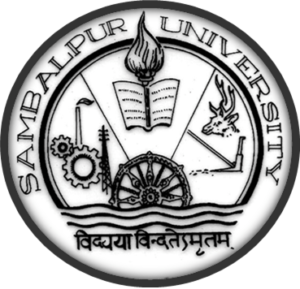Sambalpur University Institute of Information Technology
संबलपुर विश्वविद्यालय सूचना प्रौद्योगिकी संस्थान
ସମ୍ବଲପୁର ବିଶ୍ୱବିଦ୍ୟାଳୟ ସୂଚନା ପ୍ରାଦ୍ୟୋଗିକ ସଂସ୍ଥାନ
Quick Links
A research area is a broad domain of study encompassing related topics and questions within a particular discipline or field. It defines the scope of investigation, providing a framework for focused inquiry. A research field, on the other hand, is a narrower subset within a research area, often characterized by shared methodologies, objectives, or applications. Researchers typically specialize in specific fields within their chosen area to deepen their expertise. Together, research areas and fields facilitate organized exploration, collaboration, and knowledge development across diverse subjects, shaping the collective pursuit of understanding and innovation in academia and beyond.
a brief overview of each of these research areas:
Artificial Intelligence: AI research encompasses the development of algorithms and systems that simulate human intelligence, with applications in machine learning, natural language processing, robotics, and decision-making.
Building and Construction: Research in this area focuses on improving construction techniques, materials, and sustainable building practices, with an emphasis on energy efficiency and environmental impact.
Cognitive Neuroscience: Cognitive neuroscience explores the neural mechanisms underlying cognition, perception, and behavior, offering insights into how the brain processes information.
Computational Theory and Mathematics: This field delves into foundational mathematical concepts and computational methods, playing a crucial role in various scientific and engineering disciplines.
Computer Science Applications: Research in computer science applications involves the practical use of computer science principles to solve real-world problems, spanning diverse domains such as healthcare, finance, and transportation.
Computer Vision and Pattern Recognition: Researchers in this area work on developing algorithms and technologies that enable computers to interpret and understand visual data, like images and videos.
Control and Systems Engineering: This field deals with the control, automation, and optimization of systems, including industrial processes, robotics, and autonomous systems.
Electrical and Electronic Engineering: Research in this area covers a wide range of topics, including electronics design, power systems, telecommunications, and semiconductor technology.
Energy Engineering and Power Technology: Researchers focus on energy production, distribution, and efficient utilization, exploring renewable energy sources, smart grids, and energy storage solutions.
Environmental Engineering: Environmental engineering addresses the design and implementation of technologies to protect and sustain the environment, including wastewater treatment, air pollution control, and sustainable practices.
Fluid Flow and Transfer Processes: This area involves the study of fluid dynamics, heat transfer, and mass transfer, with applications in industries like aerospace, automotive, and energy.
General Chemical Engineering: Chemical engineering research covers a wide array of topics related to chemical processes, materials, and product development, often with a focus on industry applications.
General Chemistry: Research in general chemistry explores fundamental chemical principles, properties of substances, and chemical reactions.
General Environmental Science: Environmental science research investigates the Earth’s ecosystems, climate change, pollution, conservation, and the impact of human activities on the environment.
Industrial and Manufacturing Engineering: Researchers work on optimizing manufacturing processes, production systems, and supply chain management to enhance efficiency and quality.
Information Systems and Management: This field focuses on the design, implementation, and management of information systems to support organizational decision-making and operations.
Library and Information Sciences: Research in this area addresses information organization, retrieval, and management, as well as information literacy and digital libraries.
Mathematics (miscellaneous): This encompasses a wide range of mathematical research, including pure mathematics, applied mathematics, and mathematical modeling.
Mechanical Engineering: Mechanical engineering research covers topics like materials science, thermodynamics, and mechanical systems design, with applications in various industries.
Peak to Average Power Ratio (PAPR): This area deals with reducing the fluctuations in signal power in communication systems, which is critical in wireless and digital communication.
Renewable Energy: Research in renewable energy focuses on harnessing energy from sustainable sources like solar, wind, and hydropower, as well as improving energy conversion technologies.
Software Steganography: Steganography research involves hiding information within digital media, such as images or audio, for secure communication and data protection.
Strategy and Management: This area explores business strategies, organizational management, and decision-making processes to enhance competitiveness and sustainability.
Sustainability and the Environment: Sustainability research addresses the integration of economic, environmental, and social factors to promote sustainable development and resource conservation.
Theoretical Computer Science: This field delves into the theoretical foundations of computation, algorithms, and complexity theory.
Transpose: This term typically refers to mathematical operations or transformations and may be part of various research areas, such as linear algebra or signal processing.
Wireless Sensor Networks: Research in this area focuses on the design, deployment, and optimization of wireless sensor networks for applications like environmental monitoring and IoT.

